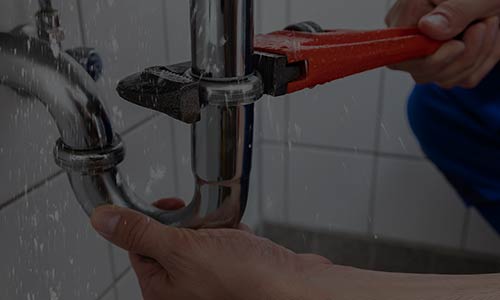Blocked Drains Research
PRECISION PLUMBING research
Blocked Drains
Using the most up-to-date technology, our CCTV drain camera and locating equipment, we can pinpoint exactly where the blockage is almost to the millimetre.
Precision Plumbing uses a high-pressure jetting machine to break through even the toughest blockages—quickly, cleanly, and affordably.

Why Choose Precision Plumbing for Your Blocked Drain Needs?
Advanced CCTV Drain Camera Inspection
Clear all blockages
Clean and Tidy Repairs
What Are the Signs of a Blocked Drain?
There are several signs that may indicate a blocked pipe or drain. If you experience any of the issues below, we suggest getting expert help promptly:
- Noticeably slow drainage from basins, showers, or bathtubs.
- Strange gurgling noises when water is flowing. These noises are often caused by the trapped air bubbles created by a blockage.
- Foul odours near drains or pipes, often caused by blockages from grease, food, or waste buildup.
- Toilets that overflow or don’t flush properly. Malfunctioning toilets may either signal a blockage in the toilet pipe or in a drain.
- Standing water around sinks, showers, or outside drains—a potential sign of improper drainage or blockage.
The sooner you reach out, the better we can identify the issue and reduce the risk of serious blockages or long-term water damage.
What Causes Blocked Drains?
Drain blockages happen for one or more of these reasons:
- Leaves, twigs, and tree roots are common culprits—roots grow into underground pipes, while debris flows through roof gutters and downpipes into stormwater drains.
- A buildup of cooking oils, grease, or fats. These substances become solid and stick to the pipe walls, eventually affecting the flow of water.
- Hair and general bathroom debris often collect in pipes, especially around sinks and shower drains.
- Bits of food, coffee grounds, and other kitchen waste not disposed of properly.
- Scum from soap and minerals can collect in pipes over time, gradually leading to restricted flow.
- Flushing non-disposable items such as wipes, sanitary products, and small objects can easily lead to clogs.
- Cracked or misaligned pipes can trap solids, increasing the risk of frequent blockages.
- Plumbing installed without care can result in misfitting pipes, where solids are more likely to catch and build up.
The contributing factors may also vary depending on whether your building is residential or commercial.
In residential buildings, we see a lot of issues with low-flow toilets and buildups of soap and hair.
Commercial and industrial buildings commonly experience drain issues from grease buildup in food service areas and the disposal of non-flushable items such as sanitary products.
Tips for Avoiding a Blocked Drain
Preventing future drain blockages is possible by following practices like:
Keeping your drains clean with routine maintenance, ideally through an annual check-up, helps ensure long-term plumbing health.
Dispose of waste carefully—never put grease, food, hair, or non-flushable items down your drains.
Installing a strainer or gutter guard helps block leaves, roots, and debris from entering your drains and causing major clogs.

When Do You Need a Professional Plumbing Service?
There are a few DIY steps you can try, particularly if the blockage is caused by a buildup of materials from inside your home or business. For instance, you may be able to use warm water and vinegar to clear grease and fat, or hot water and bleach to clear hair and toiletries.
If the appropriate DIY methods aren’t working, or if you are in doubt, we highly advise contacting plumbing industry professionals. The benefits of using a professional plumber include:
- Their cutting-edge equipment, including CCTV and high-pressure jetting tools, allows plumbers to pinpoint and resolve issues efficiently.
- Their training, licences and expertise. Plumbers have the necessary qualifications to deal with a wide range of blockages and in a range of settings, including residential, commercial and industrial.
- Their comprehensive service. Plumbers have the ability to diagnose the underlying issue, prevent recurring problems, and avoid further damage, or fix any broken drains or pipes.
- And let’s not forget personal safety. Plumbers have the training needed to handle blockages that involve hazardous materials or sewerage lines and facilities.
DIY drain fixes often come with hidden costs and risks, including recurring issues or accidental damage. Professional plumbing services offer a more reliable, efficient, and economical solution.
We’re committed to providing high-quality service at Precision Plumbing, fully compliant with commercial plumbing needs. Whether it’s a blockage, burst pipe, or another issue, our team is here to assist.

Blocked Drains Services in Research, VIC and surrounding areas
For any plumbing concerns—whether it’s blocked pipes or general repairs—reach out to Precision Plumbing. We deliver comprehensive plumbing services for both residential and commercial properties across Melbourne’s Northern Suburbs.
No job is too big or too small for our skilled, licensed plumbers. We pride ourselves on offering dependable, honest service with straightforward, competitive pricing.